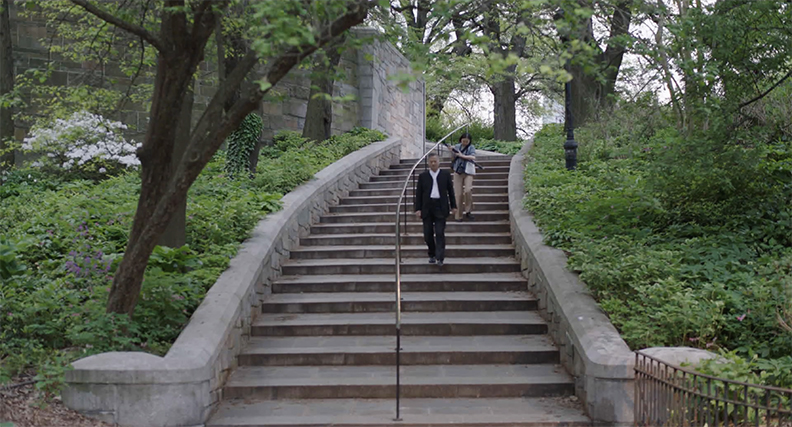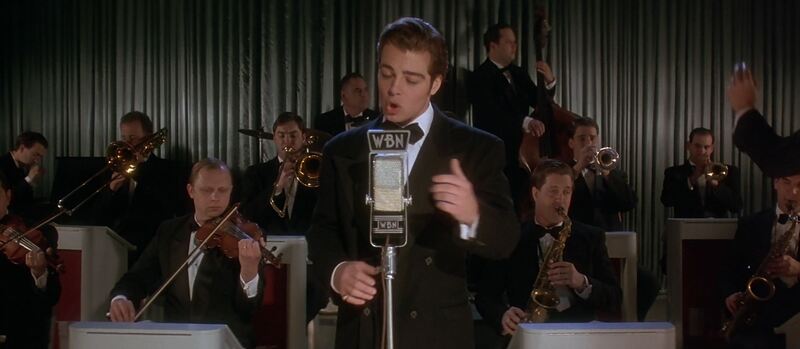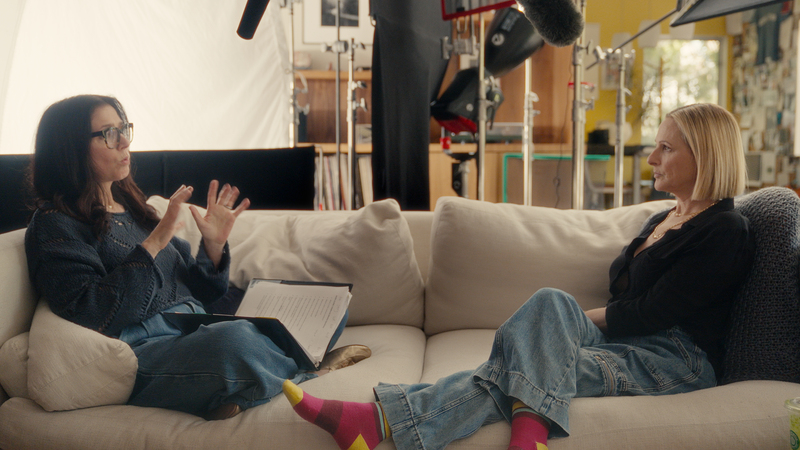
A Quiet Connection in the Noise of New York
MOVIE REVIEW
Willow and Wu
–
Genre: Drama, Comedy, Short
Year Released: 2024, 2025
Runtime: 13m
Director(s): Kathy Meng
Writer(s): Kathy Meng, Harrison Bacon
Cast: Ao Lan Guo, Yves Yan, Rachel Lu, Ming Luna, Waley Wang
Where to Watch: shown at the 20th Leiden International Film Festival
RAVING REVIEW: WILLOW AND WU begins where most workplace comedies end—with exhaustion, heartbreak, and a desperate need for space. Kathy Meng’s short film captures that fragile space between personal and professional identity through a simple, disarming premise: a recently dumped assistant, Willow, finally earns a day off only to be tasked with helping her boss’ husband with an unusual errand. What follows is a tender, awkward, and transformative encounter that says more about human connection than grand declarations ever could.
Set against the restless buzz of New York City, the film thrives on contrast. Willow, played with understated vulnerability by Ao Lan Guo, embodies the anxiety and self-doubt of a young woman navigating the contradictions of modern corporate life—where ambition and servitude often blur. Her co-star, Yves Yan, portrays Mr. Wu, the reserved, melancholy husband of her high-powered boss. The two move through the day like strangers orbiting the same emotional wound: he is coping with loss, and she is nursing rejection. The result isn’t romantic tension but something rarer—mutual recognition between two people who aren’t supposed to understand each other but somehow do.
Meng’s direction is calm yet perceptive, unafraid to linger in silence and discomfort. The film’s power lies in those unsaid moments—the pauses between dialogue, the uncertain smiles, the tiny acts of kindness that reveal more than exposition ever could. It’s a story about the social performance of professionalism and the masks worn in both personal and professional spaces. The film’s tone—what Meng calls “THE DEVIL WEARS PRADA meets Taiwanese New Wave”—is pitch-perfect. There’s humor, but it’s the kind born from awkwardness and emotional dissonance, not punchlines.
Cinematographer Sancheev Ravichandran frames the city not as glamorous but as claustrophobic—glass reflections, crowded streets, and the hum of commerce pressing in on every shot. The color palette is cool and restrained, grounding the story’s emotional tone rather than embellishing it. The camera often stays close, emphasizing faces over scenery, intimacy over spectacle. This choice allows every raised eyebrow, every nervous fidget, every subtle shift in posture to speak volumes.
The film’s architecture is built around the shared melancholy between its two leads. Willow’s heartbreak is personal, while Wu’s grief is existential, and their brief time together becomes a form of mutual healing. The film never spells out their pain, choosing instead to let it breathe through implication. In their awkward conversations, there’s both distance and connection, humor and heartache.
Ao Lan Guo’s performance anchors the film. Her portrayal of Willow is anxious and empathetic, capturing the exhaustion of being “on” all the time in a world that demands perfection from those with the least power. Her stillness is magnetic—she communicates volumes without speaking, embodying both restraint and buried confidence. Yves Yan brings a quiet dignity to Wu, his aura tinged with politeness that feels both cultural and deeply personal. His performance is equally restrained, relying on rhythm and tone rather than expression to reveal emotion.
WILLOW AND WU explores intersections of class, culture, and self-worth. Willow represents a generation caught between self-doubt and self-assertion, while Wu embodies the paradox of success—loneliness wrapped in wealth. Their unlikely connection becomes a study in empathy: the recognition that vulnerability transcends privilege. As Meng writes in her director’s statement, the film asks whether emotional honesty can exist in spaces defined by hierarchy and decorum..
At just thirteen minutes, the short accomplishes remarkable depth. Its pacing feels natural—never rushed, never indulgent. Each scene moves with quiet confidence, trusting the audience to lean in rather than explaining everything. This restraint allows the story’s emotional nuances to surface gradually, rewarding attention with subtle revelations. It’s not a film of grand gestures, but of quiet grace—a sigh, a shared silence, a realization that maybe being seen, even briefly, is enough.
Meng’s own experience parallels every frame. Having worked as an assistant to a powerful figure in New York, she channels that firsthand knowledge into an authentic depiction of workplace dynamics—the invisible labor, the blurred boundaries, the expectation to maintain composure no matter the absurdity of the task.
WILLOW AND WU’s greatest strength lies in its humanity. It’s a film about how people reveal themselves when they think no one’s watching, and how fleeting connections can leave lasting impressions. The ending, quiet yet profound, lands like a sigh of relief—a reminder that even the smallest acts of kindness can shift how we see ourselves. It’s an affirmation of empathy’s quiet power, suggesting that growth sometimes happens not in confrontation but in shared stillness.
WILLOW AND WU is elegant, emotional, and deeply relatable—a dramedy that disarms with its subtlety. It’s about learning to see your own worth through the eyes of a stranger, and about finding meaning in the brief intersections that shape who we become.
Please visit https://linktr.ee/overlyhonestr for more reviews.
You can follow me on Letterboxd, Instagram, Twitter, and YouTube. My social media accounts can also be found on most platforms by searching for 'Overly Honest Reviews'.
I’m always happy to hear from my readers; please don't hesitate to say hello or send me any questions about movies.
DISCLAIMER:
At Overly Honest Movie Reviews, we value honesty and transparency. Occasionally, we receive complimentary items for review, including DVDs, Blu-rays, CDs, Vinyl Records, Books, and more. We assure you that these arrangements do not influence our reviews, as we are committed to providing unbiased and sincere evaluations. We aim to help you make informed entertainment choices regardless of our relationship with distributors or producers.
Amazon Affiliate Links:
Additionally, this site contains Amazon affiliate links. If you purchase through these links, we may receive a commission. This affiliate arrangement does not affect our commitment to honest reviews and helps support our site. We appreciate your trust and support in navigating these links.



Average Rating